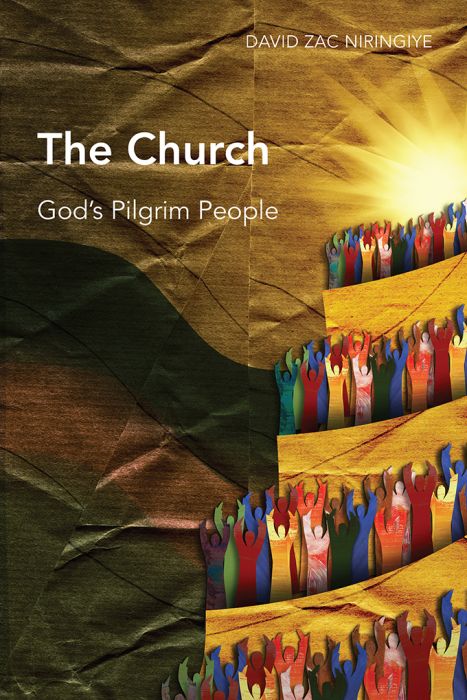Becoming and Being Church, the People of God
By David Zac Niringiye
An excerpt from The Church: God’s Pilgrim People (Langham Global Library), 2014.
It is interesting that every time I have asked people how their church came into being, they have referred to their denominational roots or their founding fathers and mothers: the former, to the European or North American missionaries who pioneered the work of those churches; and the latter, to their charismatic founding leaders. Most quickly refer me to the name of their church and the denomination they are associated or affiliated with: Catholic, Baptist, Pentecostal, Assemblies of God, Miracle, Deliverance, Word of Life, Christ is the Answer, Reformed, Anglican, Methodist, Presbyterian, Christ Apostolic, Mennonite, Lutheran … The catalogue of names and denominations is endless.
It is even more instructive to inquire what constitutes their being church. Many will quickly make reference to what happens on Sundays when they gather or during the weekdays, “at church”; others may point to their leaders or leadership structures and doctrinal emphases and biases. When one inquires deeper into the basis and foundation of these structures and practices, they have little to say. Being church for them is being part of a denomination; and becoming church is primarily about going to a place for some Christian activities.
However, there is increasing disenchantment among many, especially young people, with “church” simply as a denomination or religious institution. I have been involved in work among Christian young people in Uganda for three decades and I have noted that in Kampala, for example, where there is a myriad of churches, young people no longer ask, “What church do you belong to?” or “Which church do you go to?” but rather “Who do you fellowship with?” Church for them is space where they connect with each other. This may also be reflected in the words they use to describe their worship services.
The leading question is: Was or is the church Jesus’ idea? Did Jesus have in mind the birth of a community that would be identified as church? And was that “church” what would constitute the new people of God, in continuity with ancient Israel? Then come the follow-on questions: What does “church” that is true to Jesus’ idea of church look like? And is the church in its diverse forms today what Jesus conceived?
There are only two passages in all the four Gospels in which Jesus made explicit reference to the church: Matthew 16:17–19 & Matthew 18:15–20. Both passages communicate the idea of a community identifiable by their gathering as well as by what happens when they gather, as was the case with the Israelites. In the affirmation “I will build my church,” Jesus makes clear whose initiative and responsibility it was to bring the community into being and to whom the community would belong. Like the citizens’ gathering and Israel, they would have a shared consciousness of the group’s identity. However, their identity was grounded not simply in their belonging together, but rather in the one to whom they belonged. The community was to derive its character not from its membership but from the one who called it into being. Jesus was to be the author and reason for gathering. Furthermore, he pledged to be personally present in the gathering. It was Jesus’ gathering in every sense: his people, and by extension, God’s people.
Unfortunately, the contemporary church scene speaks more of the presence of a denominational character than that of Jesus. I fear that in a lot of instances it is not Jesus gathering his own but rather us gathering those who are like us. Is it not true that the churches as we know them today are associations rather than assemblies of Jesus? Don’t the rivalry, competition and conflict, and our inability to work together reflect the fact that our primary rootedness and calling as communities is in our worldly credentials – ethnic, social, regional, structural, stylistic and formal – and not in Jesus? I have been amazed when visiting congregations in my work as bishop in Kampala to find that some of them have felt more like tribal meetings because, in spite of the cosmopolitan nature of Kampala, the members of these congregations came from one ethnic or regional group. The history of the churches in Kenya is such that particular denominations are associated with particular ethnic groups: Presbyterian for Kikuyu; Methodist for Meru; African Inland Church for Kalenjin; and so on.
It is unfortunate that the significance of Matthew 16:17–19 in defining the purpose of an authentic Jesus community has been lost in theological and ecclesiastical debates over what Jesus meant by “on this rock” and “the keys of the kingdom.” Too much energy has been devoted to determining whether Peter was that rock and who his successors are! By focusing on this we miss the major subject of Jesus’ words, which concerns the nature and purpose of community. Jesus’ statement “I will build my church” is a clear expression of his intention to bring into being a visible community. Church was not accidental or incidental to his mission.
But the community was not to exist for its own sake. A closer look at the life, mission, message and ministry of Jesus as recorded in the Gospels shows that it was not the community that was Jesus’ preoccupation but rather the kingdom of God. It is noteworthy that while there are only two references to the church in all the Gospels, there are 76 independent sayings on the kingdom of God, or 103 if the parables are included. It was Jesus’ messiahship that would be the foundation of the kingdom; the keys to Peter symbolized the work of “unlocking” through his apostolic leadership and declaration of the finished work of Jesus as Messiah. The kingdom of God was the reason Jesus was revealed. The purpose of the community is the kingdom of God.
The church was not the good news that Jesus preached; that good news was the kingdom of God. It is the kingdom of God that defines the church, not vice versa. The church does not possess God’s reign; it is to be possessed by it. Jesus’ presence in the world would continue “where two or three are gathered” in his name. This would especially be the case after his physical departure from them, for he would be present forever among them by his Spirit, whom the Father would send in his name (John 14:16–21). The community was to be a bearer of the kingdom of God in the world, by the presence and power of the Holy Spirit. This should act as a corrective to many erroneous notions of the church “building the kingdom of God.” The kingdom of God is a greater and more encompassing reality; its vision much more liberating and inclusive; and its scope, spanning time and eternity. The kingdom of God is the reason for the church.
David Zac Niringiye, The Church: God’s Pilgrim People (Chapter 1: Becoming and Being Church, the People of God) (Langham Global Library), 2014. Used with permission.
David Zac Niringiye is a Langham Scholar, and holds a PhD in Theology and Mission History from the University of Edinburgh, UK an MA in Theology from Wheaton College, USA as well as a Physics Honours degree and Teaching Diploma from Makerere University, Uganda. He is a leader with national and international acclaim and has experience as a church leader, theologian, peace and social justice activist and an organizational development consultant. Bishop Zac who previously served as Assistant Bishop of the Diocese of Kampala, is now engaged in full-time civic-political activism in his native country of Uganda. He is married to Theodora and they have three children.

